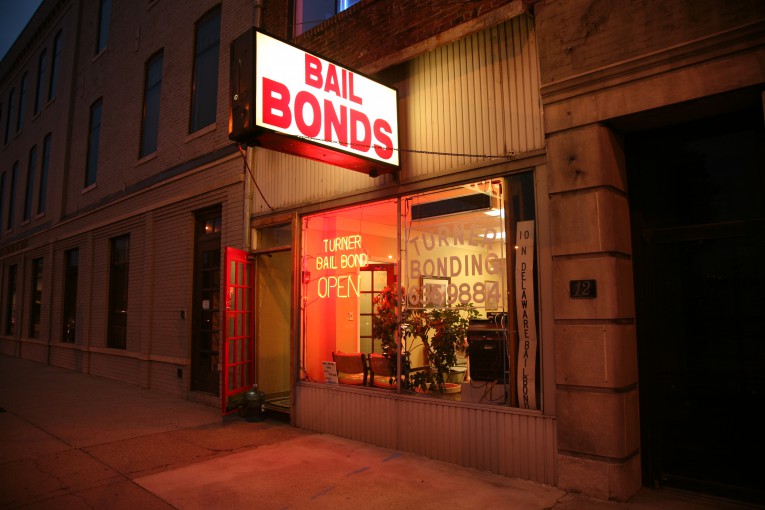

By Dominique Kato
STATE CAPITOL – Attorney General Xavier Becerra Wednesday made the California First District Court of Appeal’s ruling in In re Humphrey binding on trial courts while its review of the case is pending in the California Supreme Court.
In short, Becerra argued that people should not be locked up before trial just because they are genuinely unable to afford bail.
Kenneth Humphrey had been charged with first degree robbery, first degree residential burglary, inflicting injury on an elder and dependent adult, and theft from an elder or dependent adult. On May 31, 2017, at his arraignment, his bail was set at $600,000.
On July 10, Humphrey filed a motion for a formal bail hearing, claiming “bail, as presently set, is unreasonable and beyond the defendant’s means” and “violates the Eighth Amendment’s proscription against excessive bail.”
After a lengthy hearing ended on July 12, the judge reduced the bail to $350,000. The court believed a high bail was still warranted “because of public safety and flight risk concerns.”
On August 4, the petition for writ of habeas corpus was filed, at which time the petitioner was in custody.
The case was then heard by the California First District Court of Appeals, which concluded that Humphrey was entitled to a new bail hearing, where the court would determine his ability to pay, and consider his non-monetary alternative to money bail. If found unable to afford the amount found necessary by the court, then they should follow procedures for a valid order of detention.
The Court of Appeal argued that when the trial court found the petitioner capable of release on bail, but set his bail in an amount that was impossible for him to pay, this constituted a detention order lacking the due process protections constitutionally required.
On October 9, 2018, Attorney General Becerra filed an amicus brief in the California Supreme Court Case In re Humphrey. Becerra argued that the principles of due process and equal protection require consideration on whether a criminal defendant has the ability to pay the amount of any monetary bail.
Under the California Constitution, courts may still order detention without bail for those defendants who pose a serious threat to public safety or are a flight risk.
However, courts may not require an unaffordable amount of money bail as a means of detaining defendants who pose no serious threat.
Becerra also argued that the California Constitution permits the legislature to protect victims and the public through alternatives to money bail, such as programs to detain dangerous defendants pending trial.
“Decisions regarding whether to keep a person in jail while he or she is awaiting trial must ensure public safety and respect the rights of defendants. Whenever possible, we should be using alternatives to incarceration that preserve public safety and ensure a defendant’s return to court,” said Becerra.
In Humphrey, 233 Cal. Rptr. 3d 129, 417 P.3d 769 (Cal. 2018) the Court of Appeal ruled that these principles were violated when the trial court deemed the defendant eligible for release, yet set bail at a high amount that the defendant could not afford.
Ultimately the appellate court also noted that “the important question in setting bail is not what is prescribed in any bail schedule, but the amount necessary to secure a defendant’s appearance at their trial or court-ordered hearing.”
Currently the binding effect of the Court of Appeal’s decision is paused until the California Supreme Court makes a decision.
Becerra wrote a letter to Jorge E. Navarrete, the Clerk of the Supreme Court, to argue they also join in with the request to make the Court of Appeal decision binding until the Supreme Court’s decision has been made.
It states on June 25, 2018, counsel for Kenneth Humphrey filed a letter requesting that the Supreme Court order that the Court of Appeal opinion have a binding effect until they have issued a decision. However, the Supreme Court denied that motion on August 22, 2018.
“As counsel for the petitioner, we support that request in part,” stated the letter.
In the letter Becerra reiterated that pretrial detention should depend on an individualized assessment of the need for a person to be detained, rather than on a defendant’s financial resources.
In summary, people should not be locked up before trial just because they are genuinely unable to afford bail.
The letter argues that the Court of Appeal’s decision is supported by decisions from the U.S. Supreme Court and the high courts in other jurisdictions. Further, they argue, with current circumstances, statewide implementation of this core principle is especially important for bail decisions occurring during the pending court’s review.
In the court’s grant of review one of the issues was, “Under what circumstances does the California Constitution permit bail to be denied in noncapital cases?” This was discussed in Section IV and is still being contested.
The letter argues, “Until this Court decides the state constitutional issue in this case, the issue deserves further consideration by the State’s lower courts—and this Court should avoid any action that might unintentionally forestall that process.”
They state that any order by this court in response to respondent’s motion should specify that the Court of Appeal’s opinion has binding effect with the exception of Part IV.
They say this would make it clear that, during the pending review, the court’s action is not intended to prevent the parties from contesting that issue nor to prevent lower courts from deciding it de novo—in particular cases.
“While justice must be impartial, it cannot be blind to the inequities of our society,” said Attorney General Becerra. He also stated, “Bail determinations should be about danger to the public, not money in your pocket.”
To sign up for our new newsletter – Everyday Injustice – https://tinyurl.com/yyultcf9
